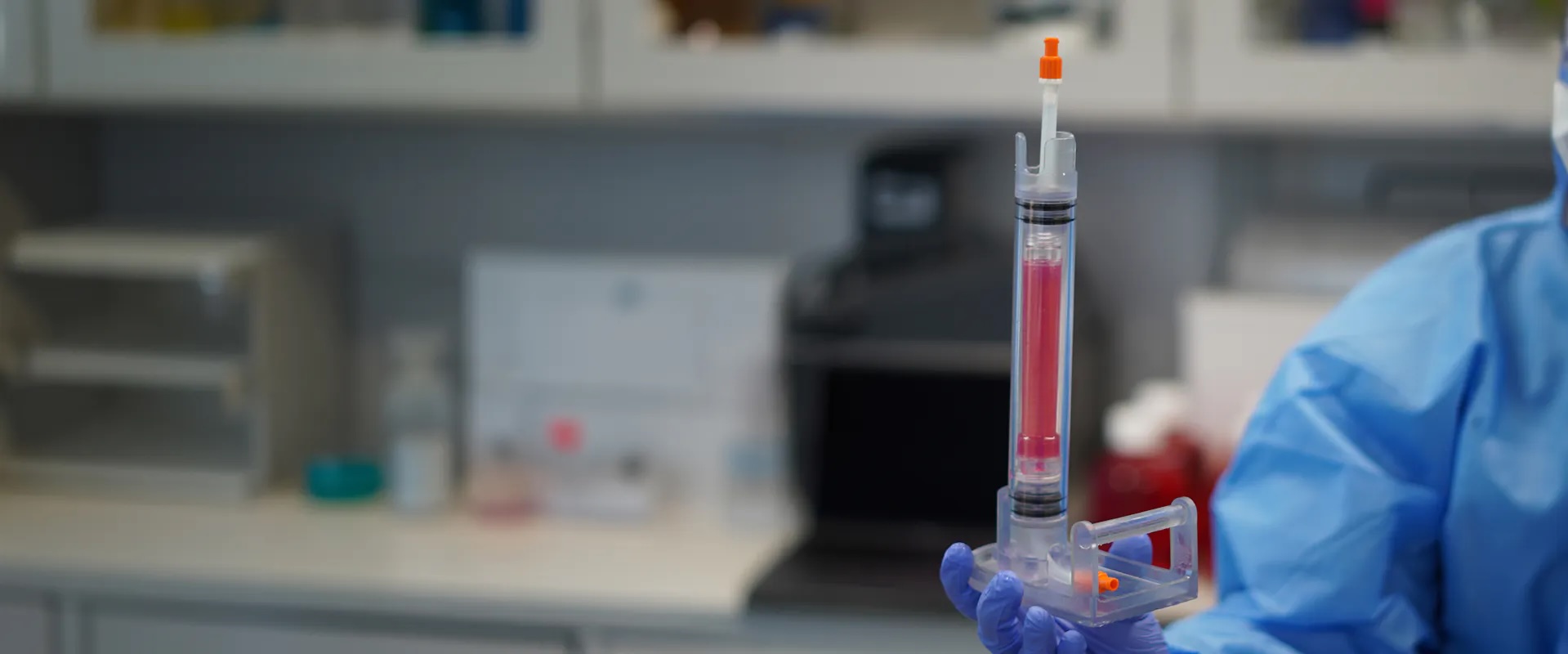Tokyo (SCCIJ) – Swiss researchers are working on the generation of human tissue material for integration into a patient’s body. They created a bioreactor for tissue-engineered cardiovascular implants.

Swiss scientists can create a vein transplant for your heart in a bio-reactor (© CSEM).
Stem-cell derived tissue
Engineers of the Swiss Center for Electronics and Microtechnology (CSEM) and researchers of the early-stage company ClexBio created and tested a prototype bioreactor for the production of functional vein implants made of stem-cell derived human tissue which integrates into the patient’s body and becomes living tissue.
ClexBio’s platform technology VivoSet is a revolutionary cell-biomaterial formulation that can mold and engineer tissues with complex architecture such as veins. These veins are produced by combining normal cells with patented biomaterial using a microfluidic process.
Once the desired tissue is formed, both cells and scaffolding are removed, leaving behind an implant composed of human extracellular matrix, which is the main component of natural tissues. Their resulting tissue-engineered vein graft can be implanted into patients off the shelf.
Scalable technology
CSEM, the Swiss technology innovation center, specializes in the development of standardized tissue engineering platforms. Its engineers collaborated with ClexBio’s experts to design and validate a bioreactor that can produce these tissue implants in a scalable fashion.
The bioreactor replicates the tubular structure of veins carrying blood from the organs back up to the heart. Using a combination of a scaffold and biocompatible membranes, as well as 3D printing with biocompatible resins, CSEM’s team designed the mold for producing tubes such as veins and generated a series of engineered tissues with a length of about 10 cm and diameter of about 1 cm.
Based on ClexBio’s early pre-clinical results, the implants do not trigger an immune response in patients after being implanted because the original cells are from the patients themselves. Instead, they are colonized by the patient’s cells and turn into functional tissue that integrates and grows with the body – a truly regenerative solution and a potential breakthrough in modern medicine.
“Supervene Project”
The Supervene project aimed to develop standardized, automated fabrication processes for regenerative medicine, moving from the lab bench to a clinical setting. The veins are matured over a few weeks in a sterile environment, with automated media circulation for oxygen and nutrient supply. Using a closed system to generate vein grafts reduces the risk of contamination, ensures product quality and safety, and facilitates regulatory compliance.
Now that the system has been developed, ClexBio will conduct additional pre-clinical testing in larger animal models to generate data on the functionality of the bio-engineered vein implants in the cardiovascular system, including their ability to repopulate with the host’s cells.
Text: CSEM (Editing by SCCIJ)





























